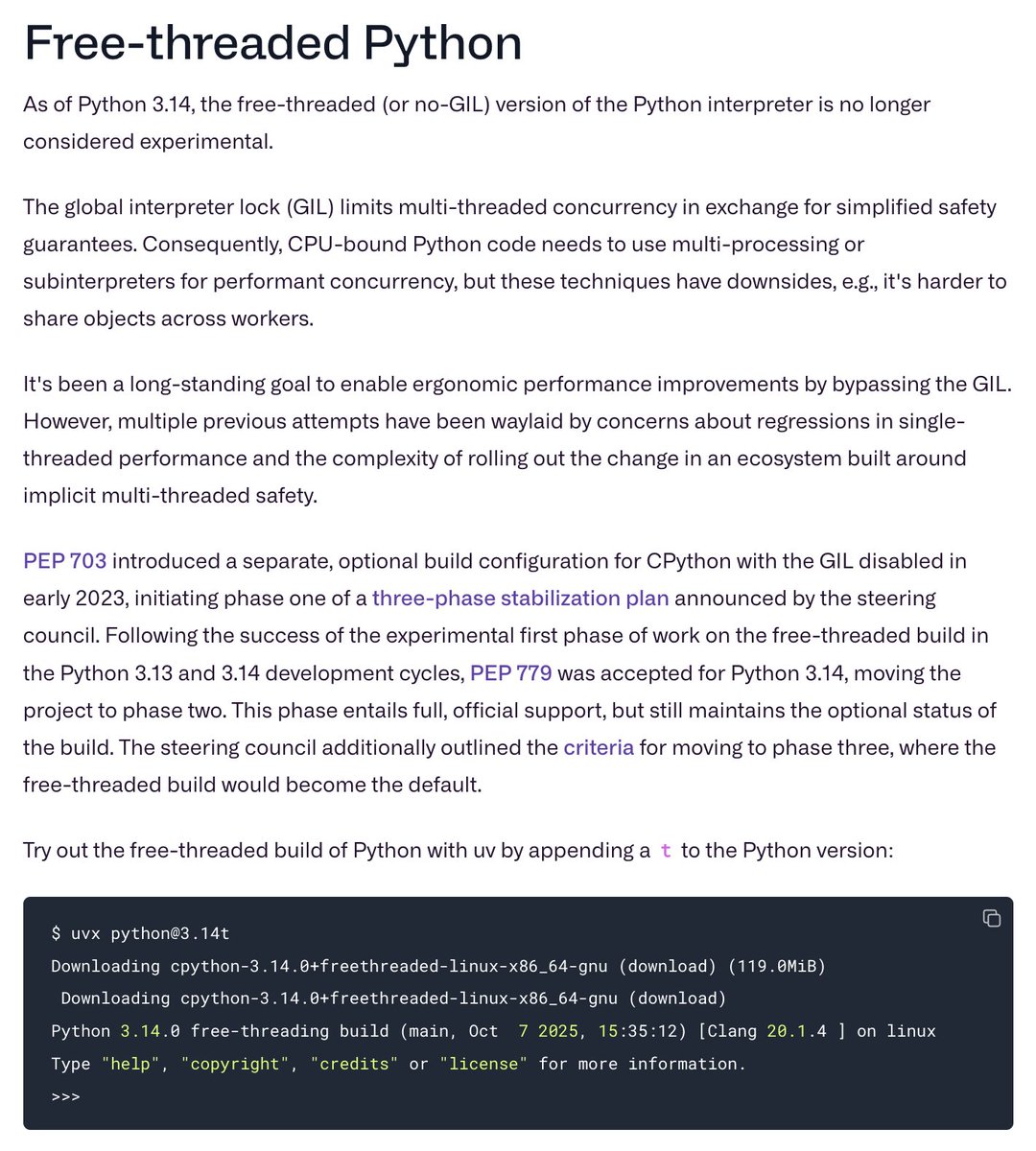As of Python 3.14, the free-threaded (or no-GIL) version of the Python interpreter is no longer considered experimental. 

• • •
Missing some Tweet in this thread? You can try to
force a refresh










